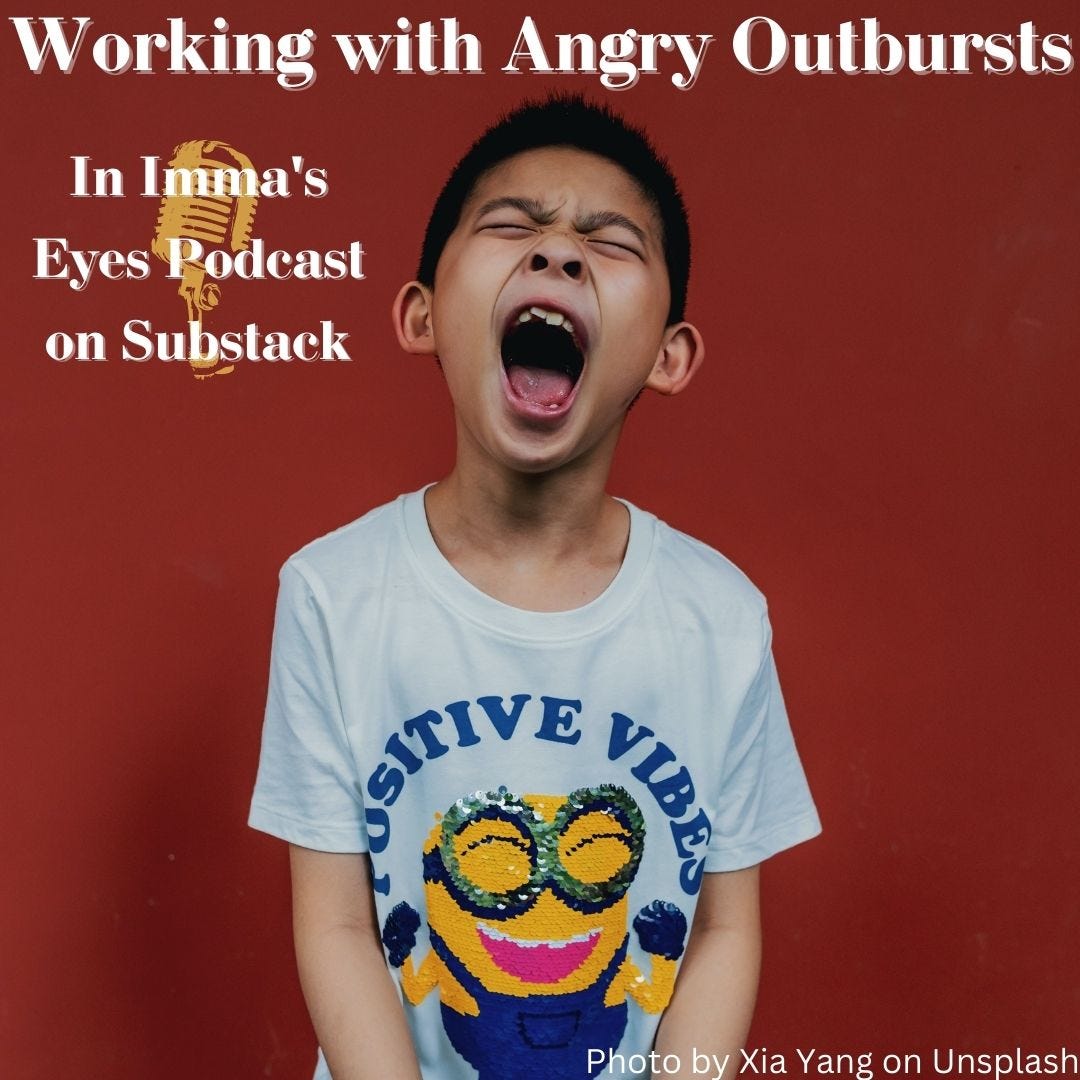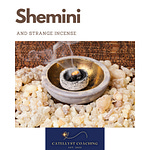This past week, I saw a disturbing post on Instagram. The well meaning author was saying that she felt that sending kids to their room when they are having big feelings was shaming and punitive. I think she could be right in SOME situations with SOME parents and SOME children. However, I think that the room is a neutral TOOL, and that sometimes “Big Feelings” turn violent. And frankly, I cannot allow my other children to feel unsafe while witnessing an explosion from their sibling. I am speaking from experience, as I mentioned in a post on my other Substack newsletter, I have four children, three of which are emotionally defined, two of which had meltdowns on the regular. Join me this week as we talk about an appropriate way to empower your child to cope with their “Big Feelings,” (while keeping everyone else safe and YES it involves them being in their room). Let’s talk about it!
“In Imma’s Eyes” is a podcast where we journey through the weekly Torah portion and glean parenting insights along the way. This week we are studying Parashat Mishpatim (Exodus 21:1-24:18). In my understanding Mishpatim comes from the root shofet, which means judge, but also means referee. So this week the Torah is covering a list of laws, or judgements. They all seem to be reparative judgements, so, let's take a look and see what we can glean from this list of reparations that can guide our parenting practice.
Bullet Points from Each Aliyah
A1 letting a Hebrew slave go free after 6 years: is this to protect a group of slaves from now becoming the oppressors? The slave can choose to stay if he loves it! (And incentive for treating him well)...and if you injure someone during a quarrels, you must pay for his time off work plus his medical bills…
A2 we have laws about and eye for an eye, or a tooth for a tooth, which sounds really cruel. Our Sages have a tradition that this means the financial value of the eye or the tooth. So, for instance, a concert pianist loses his right hand. He can no longer play. The reparation for this injury would be a lot higher than a translator who lost his right hand (and it doesn't affect his work). Here we also have the habitual ox law.
A3 We have a juxtaposition of the laws when someone leaves something over at your place verses you BORROWING it, and then at the end of a list of death penalties the Torah says to not to mistreat a stranger, a widow or an orphan. And then says to not treat people who borrow money badly, even returning their garment from collateral to them. Why? Because "I am merciful," says G-d. (Lest you think G-d is not because of the death penalty and the "eye for an eye" business.
A4 do not accept a false report (OY tattling) and helping out your enemy's bull or donkey. (Meaning try to move forward in neutral, not revenge mode)
A5 Shabbat and the festivals are mentioned
A6 G-d mentions there is a blessing for obeying.
A7 And, G-d continues, even though I am able, I WILL NOT drive them all out in one year, since your numbers are not great enough to cover the whole land. And we culminate in the giving of the rest of the Torah to Moshe
Parenting Touchpoints
In this episode we discuss:
The Shema, and the idea of “Teaching when you sit down, and as you walk along the way,” from the Va’ahavta
Empowering our children when placing them in situations where they are responsible.
The habitual ox, violence, and a heartfelt invitation to anyone struggling with a child who has angry outbursts.
May the G-d of Abraham, Isaac and Jacob bless you with wisdom, support and shalom as you raise the beautiful souls G-d has entrusted to you.
Until next time, Shalom!













Share this post